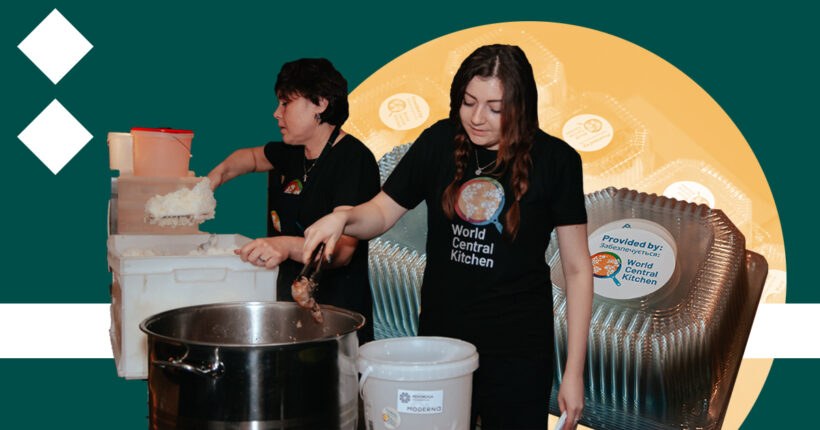
As soon as a Ukrainian village or city is liberated, WCK volunteers are already there the next day. They bring food and ready meals. Residents who've been under occupation for months meet them with tears in their eyes and "thank you." From the first day of the full-scale invasion, the World Central Kitchen mission fed Ukrainians. The primary thing, WCK representatives say, is to care for the people who suffer from this war.
The Rubryka correspondent visited the Dnipro WCK headquarters. How did they build their work there and cook the necessary hundred portions daily to tens of thousands? How did they feed people McDonald's food, and what does "Victory" have to do with it?
Work readiness
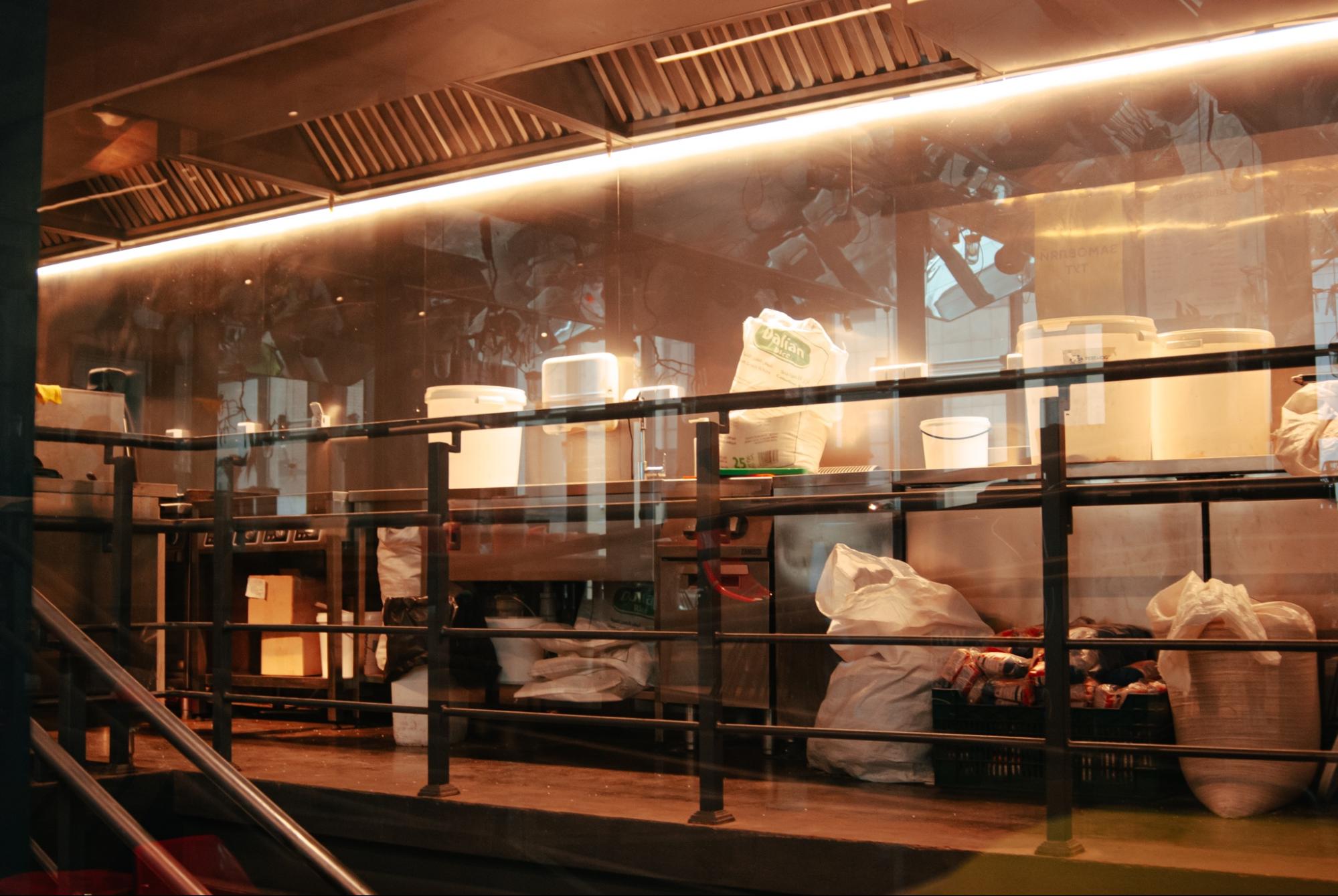
Eleven on Thursday evening—the people of Dnipro are preparing for the curfew: they finish their work, return home, and someone has already finished everything and is sleeping. Another air raid alarm cuts through the city air, and behind the siren's noise, several explosions are heard, one after the other. After a few minutes, it became clear that it was a missile strike, not the work of air defense. Smoke from the center of the city can be seen several meters away, and the smell of burning is carried throughout the city.
Later, the people of Dnipro will find out: the russian forces struck the market, which had not worked for a long time, and the transport company location where more than a hundred city buses were parked. Recently purchased cars explode one after another.
While firefighters are putting out the fire and law enforcement officers are busy documenting evidence of russian aggression, a small team of volunteers is already developing a plan to feed the people currently working at the missile strike sites tomorrow.
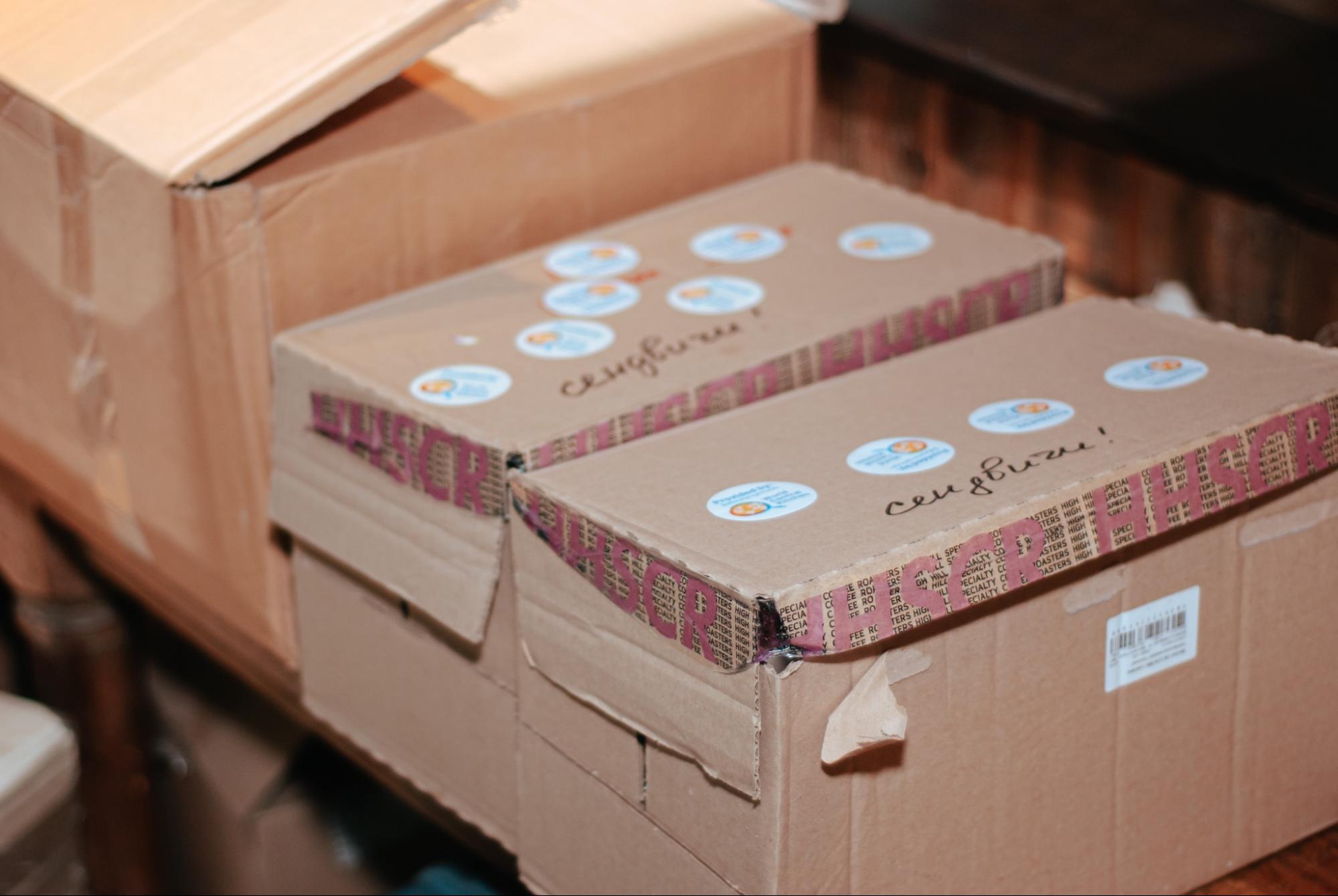
In the morning, a hundred servings of meals and sandwiches are already ready, packed, and sent. "This is all for people who need care at the place of strike: rescuers, doctors, and law enforcement officers. People who are pulled out from under the rubble and those who are under stress after explosions," says Anastasia Yerak, World Central Kitchen food mission coordinator in Dnipro.
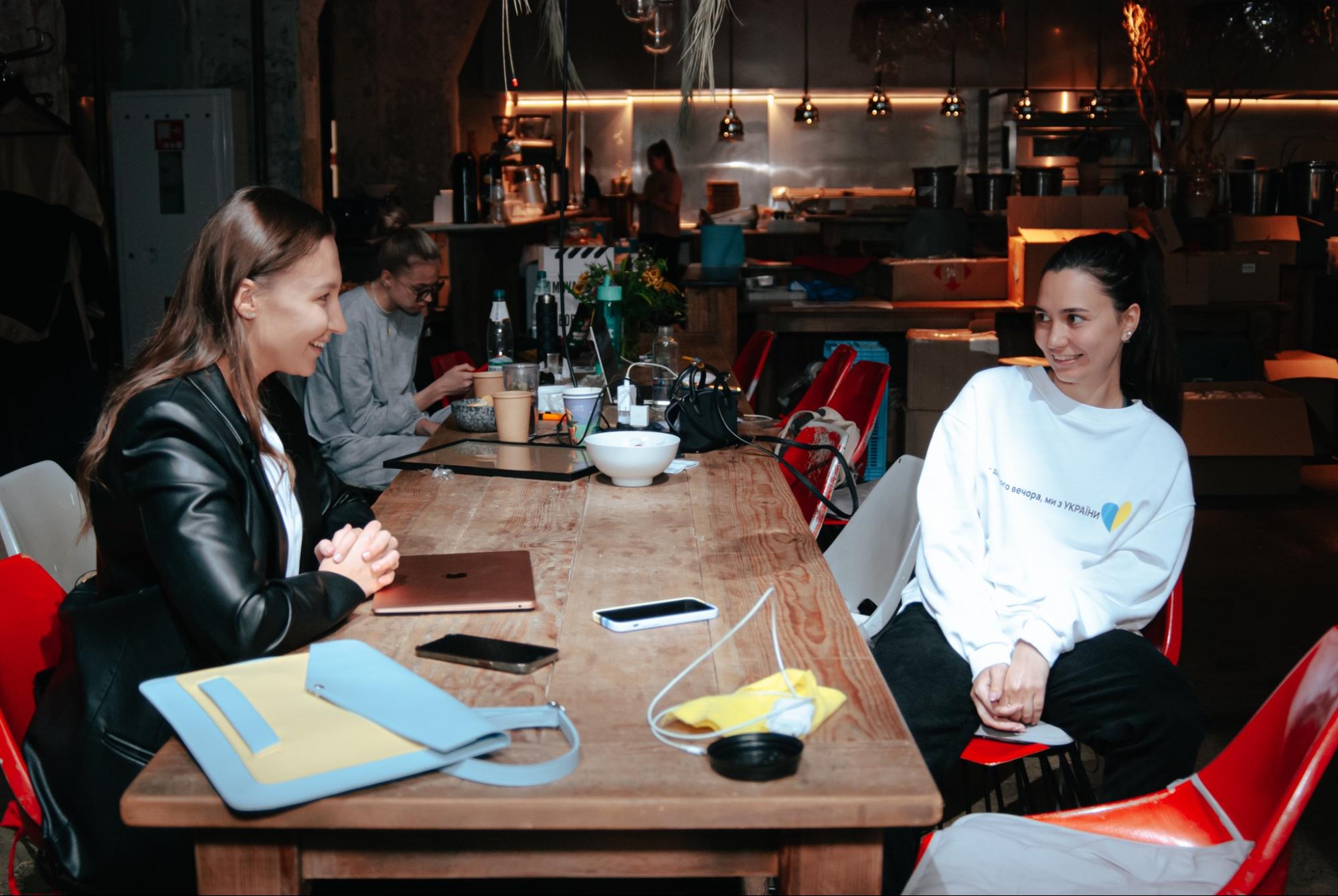
The woman says that law enforcement officers and rescue workers often do not have time to eat a full meal, so they quickly grab what volunteers have brought between their work.
Following the first batch of food, the second batch is prepared for dispatch. There are rice and chicken in shiny pots, tomatoes and greens in large buckets, and amber oil in small jars on top.
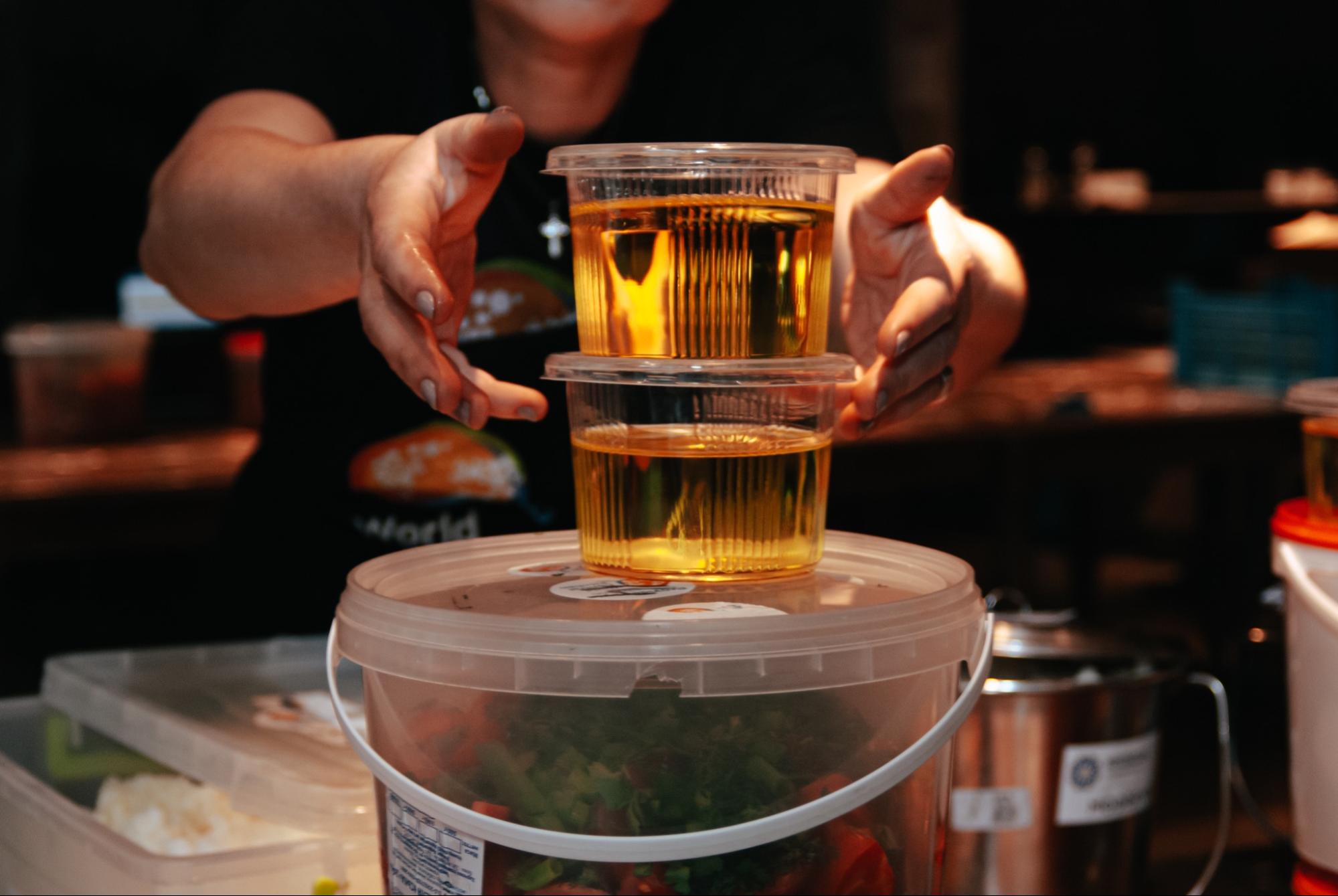
"Today, we have 982 portions that will go to 21 shelters. If you count, this is 476 kilograms of food, with which we will soon feed people," says World Central Kitchen volunteer Yana Horodilova. The military took her and her mother out of war-torn Volnovakha under fire. The family has been looking for a job in Dnipro for a long time, and now the women have been working at the local WCK headquarters for several months. Mother and daughter monitor how the food is prepared for shipment and distribute it to the lists.
The World Central Kitchen food mission started working in Dnipro in March. But its work was directly related to the Victory Ukraine Charity Fund.
It all started with "Victory"
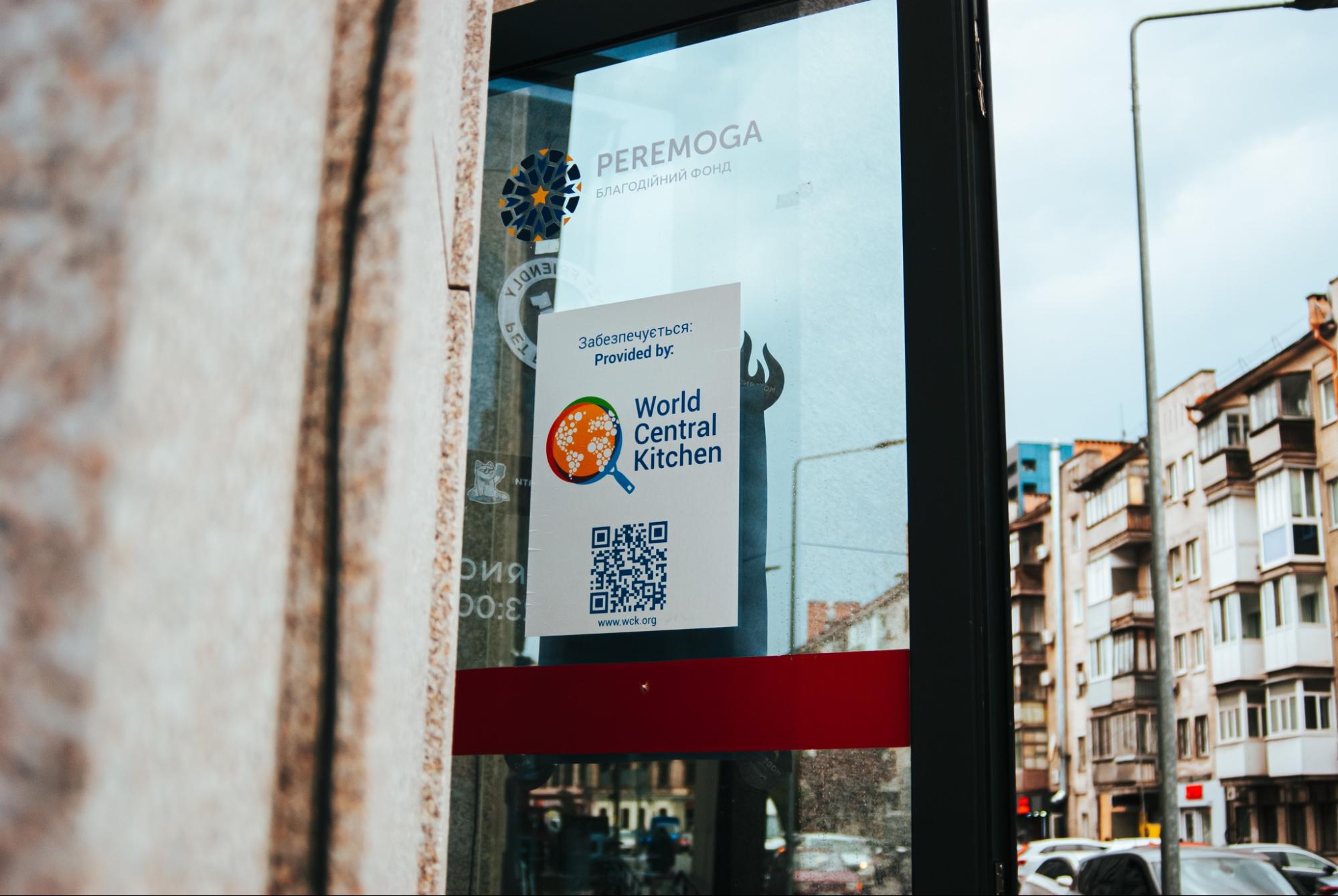
A day after the full-scale invasion, Anastasia Yerak realized: you can't sit in panic and fear. The woman managed a branding and events agency, where she developed logos and naming and organized private and corporate events. And after February 24, Anastasia and her team found the only important thing—volunteering.
Acquaintances from the Azov regiment were the first to apply for aid. The military said they needed time to establish the process of providing food, but in the meantime: can Anastasia somehow help them with food? The woman opened her contact list and started calling restaurateurs she knew to ask them to feed the soldiers. From a large circle of contacts, no one said no.
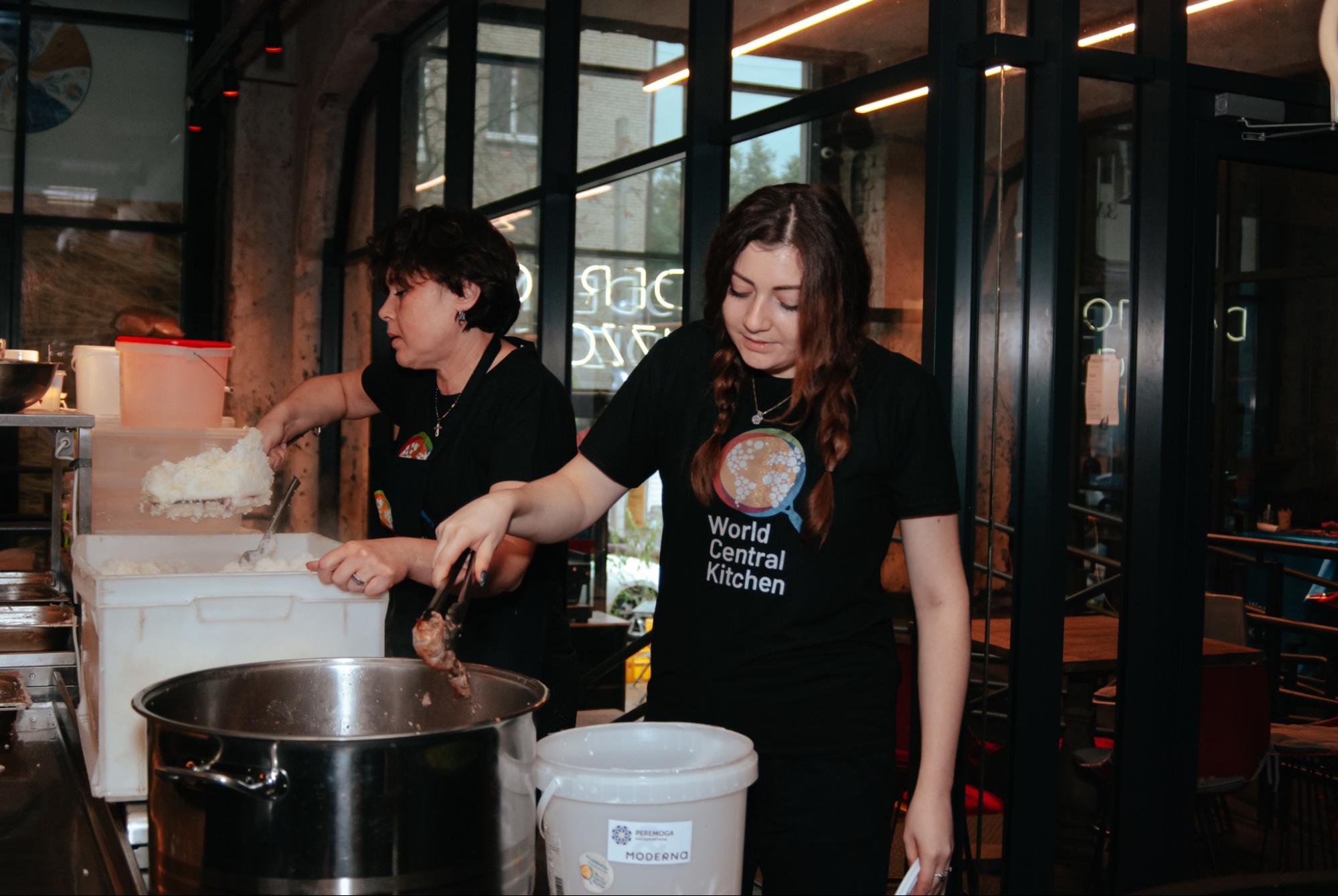
"It turns out I needed to feed 70 people and had enough capacity for several thousand people. They responded because they wanted to help. That's why it was inconvenient to refuse," says Anastasia Yerak.
So that restaurateurs are not unhappy, a team of volunteers collected additional requests from those who needed hot food. 3.5 thousand defenders submitted applications.
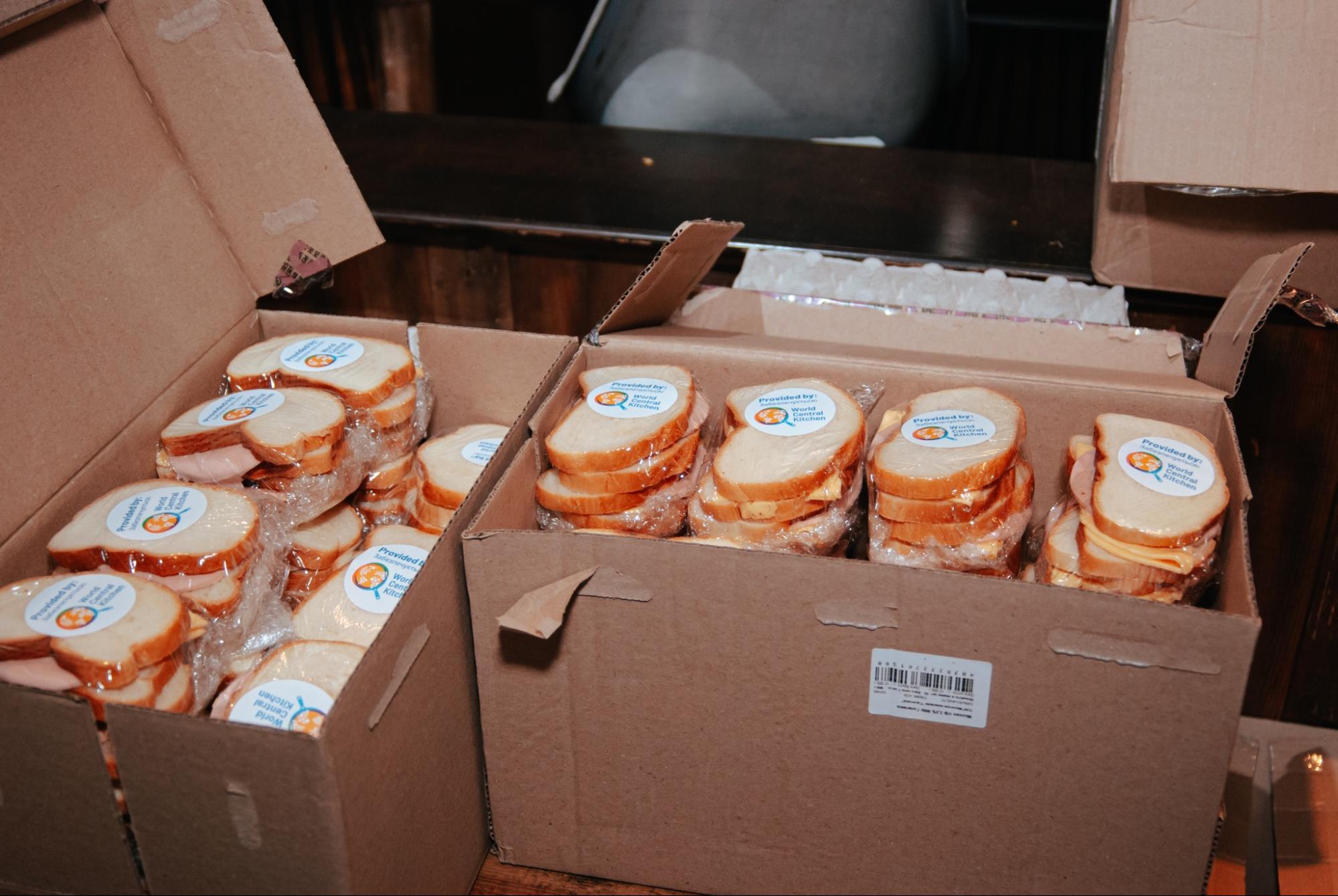
On February 27, 15 Dnipro restaurants prepared the first batch of food. At this time, migrants began to arrive en masse in Dnipro, so the number of those who needed to be fed grew to 7,000 portions per day. So a team of volunteers created its charity fund with Anastasia as its director. It is called Victory Ukraine.
"We didn't contemplate the name for long because 'Victory' is everything we want and strive for. Moreover, victory is already there even when you did not go abroad, woke up in your hometown, and continue to do your work," says Anastasia Yerak.
In the first days of work, the volunteers were greatly surprised by the Ukrainians: they were ready to donate thousands of hryvnias. "I remember the first fundraising. Literally, in an hour or a half, there were already 200 or something thousand hryvnias on my account. Clients of the agency, with whom we worked until February 24, helped a lot. They asked: 'How much money do you need to feed people for a day?' '50 thousand hryvnias.' And one person sent the entire amount."
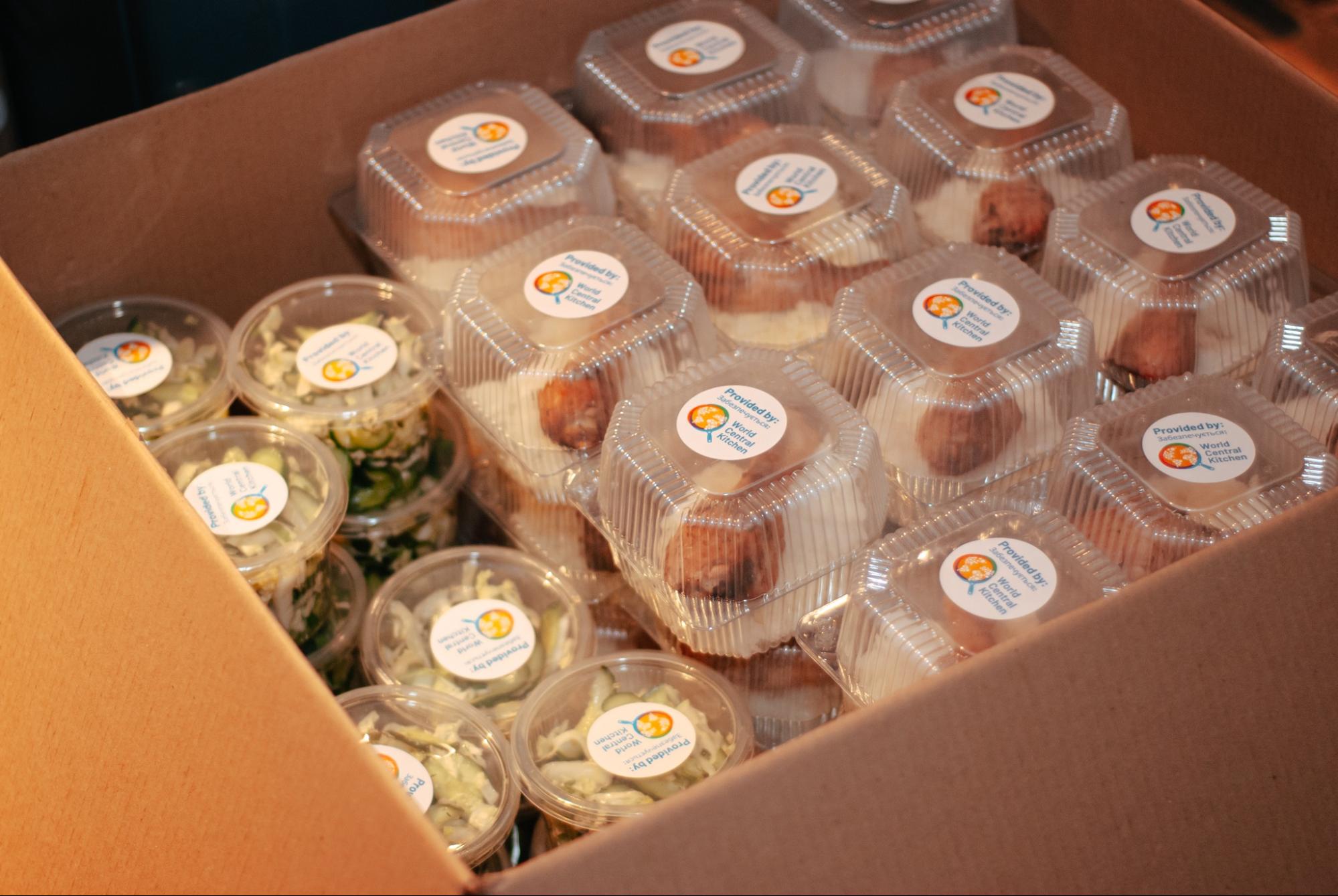
In addition to money, people were ready to bring all kinds of products to restaurants. City delivery services also gave their stocks. Therefore, on several occasions, soldiers and migrants were fed dishes made of salmon, eel, and shrimp.
"But we realized that working with small batches of products is difficult. We don't feed 15 people. We cook for thousands. The remains of buckwheat, rice, and pasta cannot be put in one pan. Let these products stay in families. And we started working with mass batches, so it was easier to organize the whole process," says Anastasia Yerak.
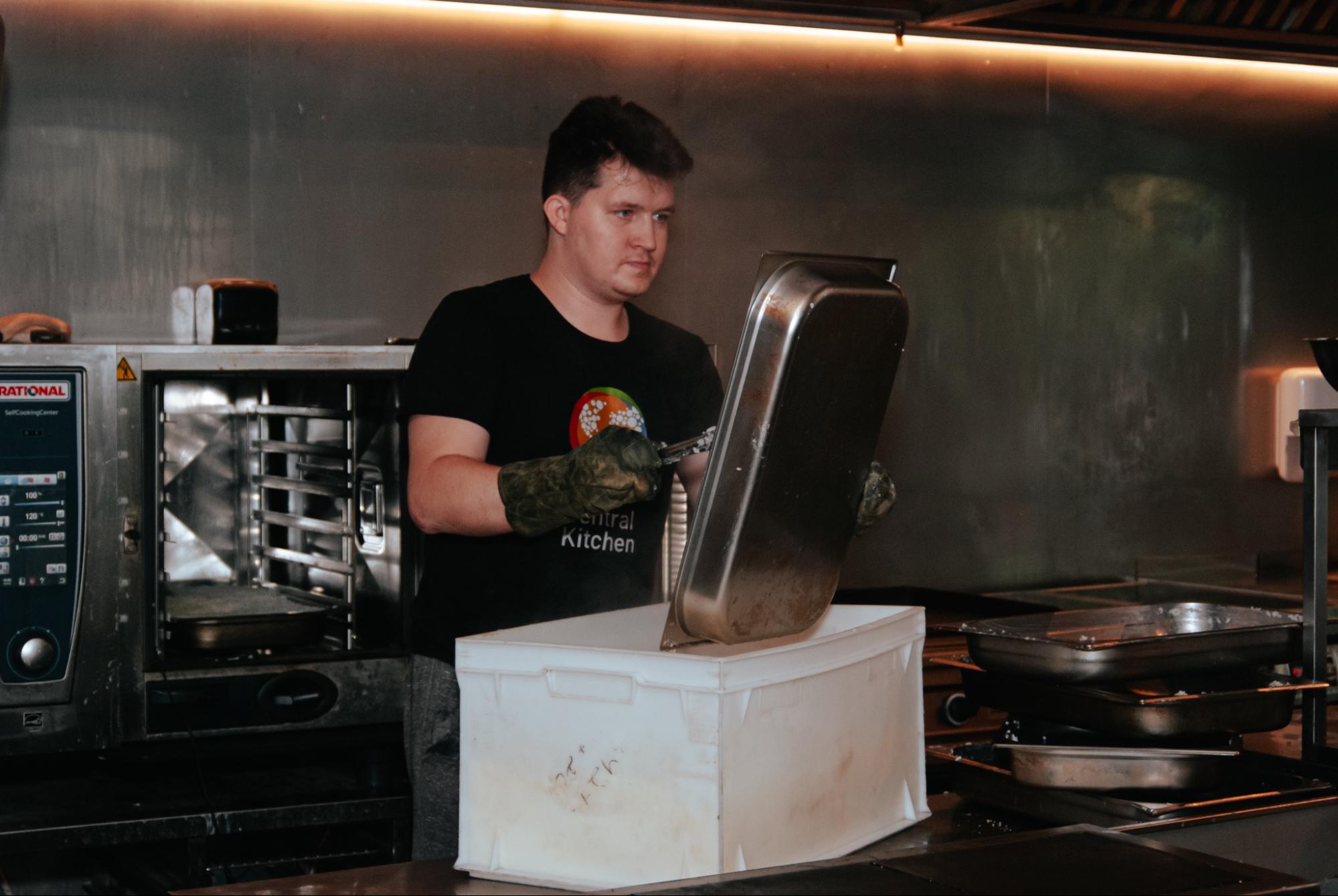
Dnipro McDonald's venues handed over the remains of their products to city volunteers (the chain has not been operating in Dnipro since the beginning of the full-scale invasion). Victory Ukraine was among the teams that received frozen cutlets, buns, vegetables, and sauces.
"In general, we have a balanced menu worked out by specialists. But we also had junk food days. People were fed nuggets and French fries. But the secret of Mac burgers has not been revealed. We collected all the components in a hamburger, even the same cucumbers, but the taste was still different," Anastasia laughs.
WCK mission or the luck of the draw
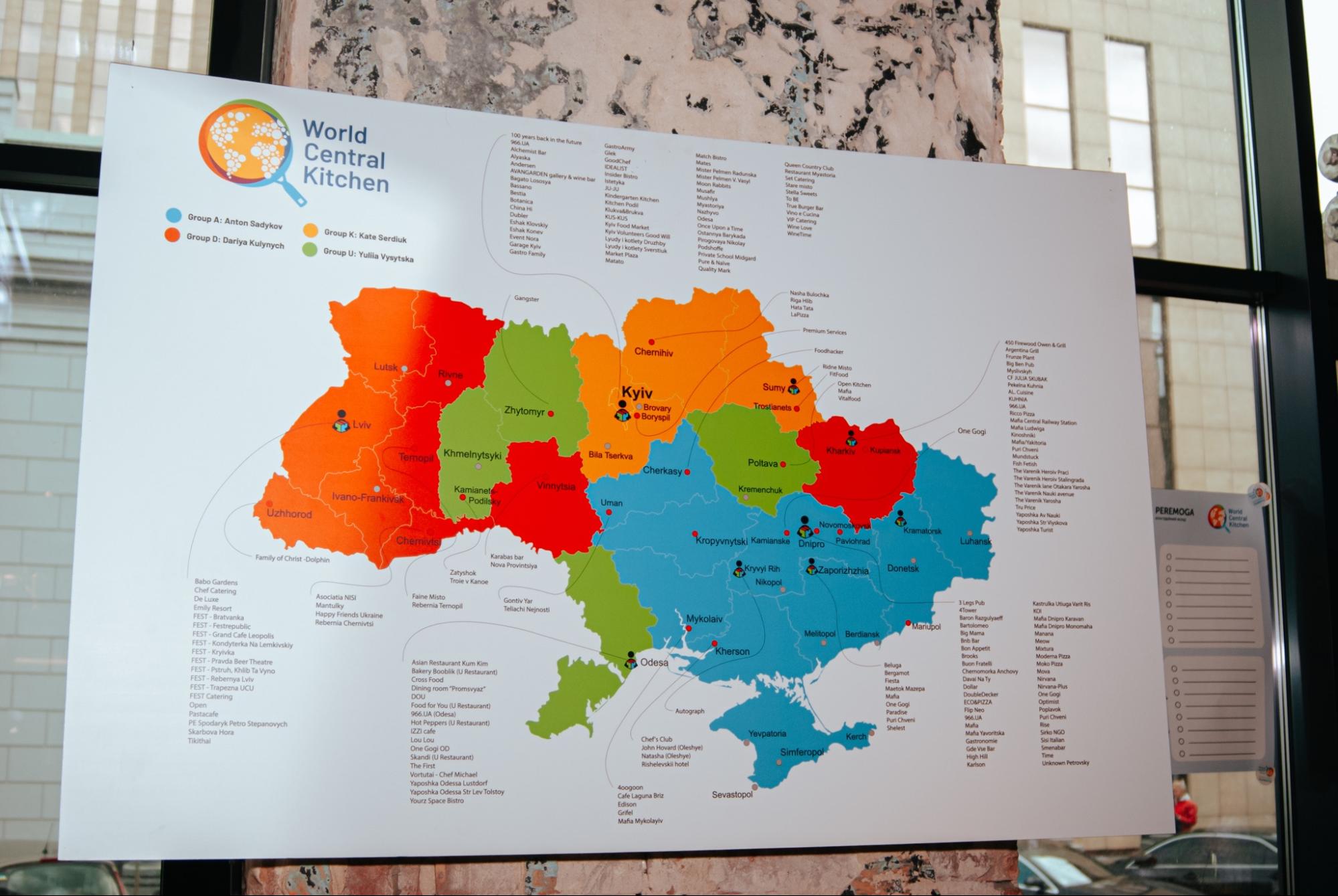
The beginning of March was difficult for "Victory." The products in the warehouses were running out. The russians began to attack the businesses of patrons who helped volunteers with meat. The number of people who needed help with food in Dnipro was increasing. Many women and children came to the city. Their volunteers couldn't feed them once a day. They needed at least two times—at least 14,000 servings a day.
Gradually, "Victory" came to the point that it was necessary to attract foreign investments. They did not want to collect money from Ukrainians because everyone was a victim of this war.
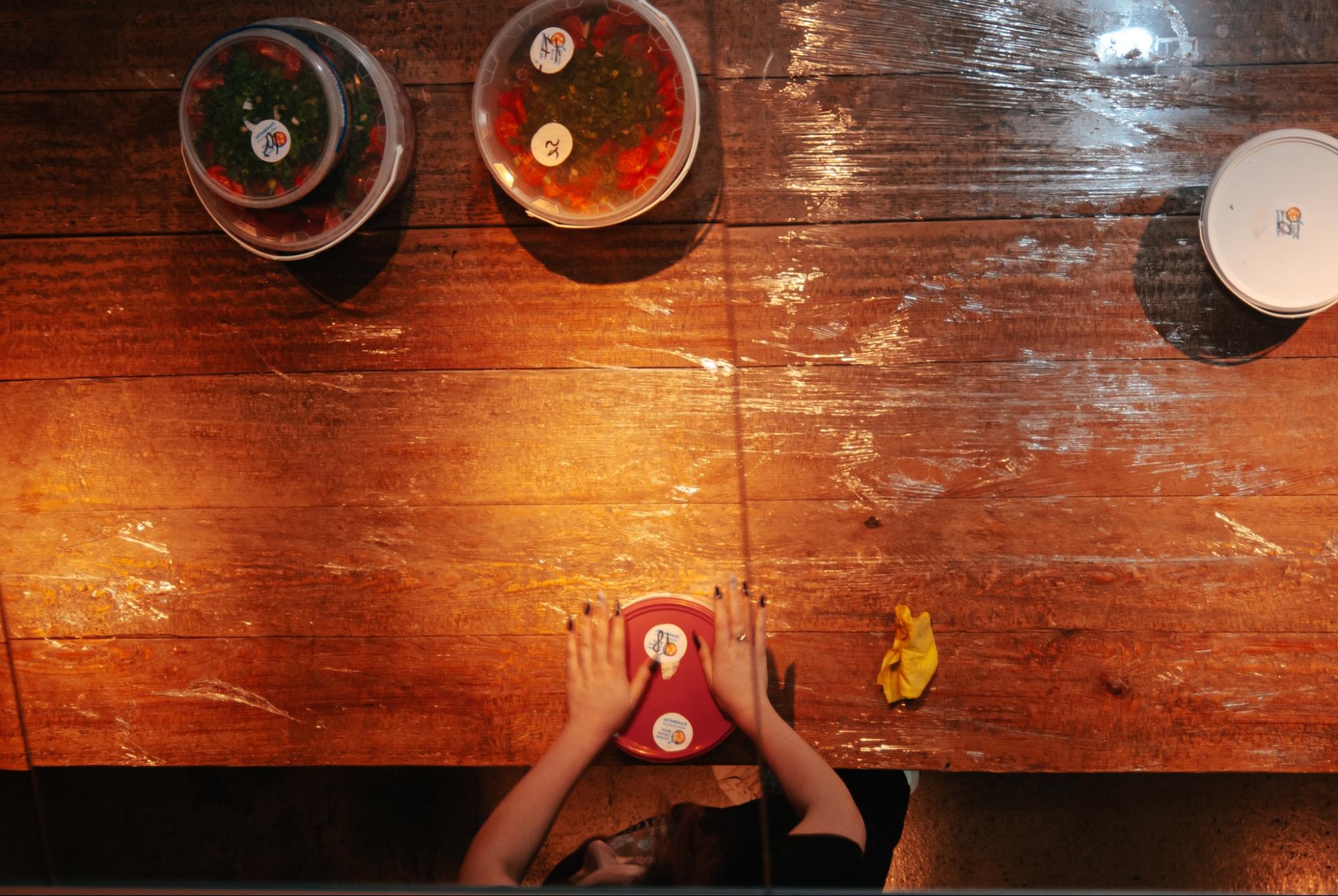
"In mid-March, we had the luck of the draw," says Anastasia about the meeting with representatives of World Central Kitchen: "Friends met with them at the state border, told about our work with restaurants in Dnipro."
In Dnipro, the organization began to cover the cost of products, minimum wages, and payment of utilities for restaurants that already worked in the Victory Ukraine network. WCK also connected a dozen more institutions.
How WCK works across the country
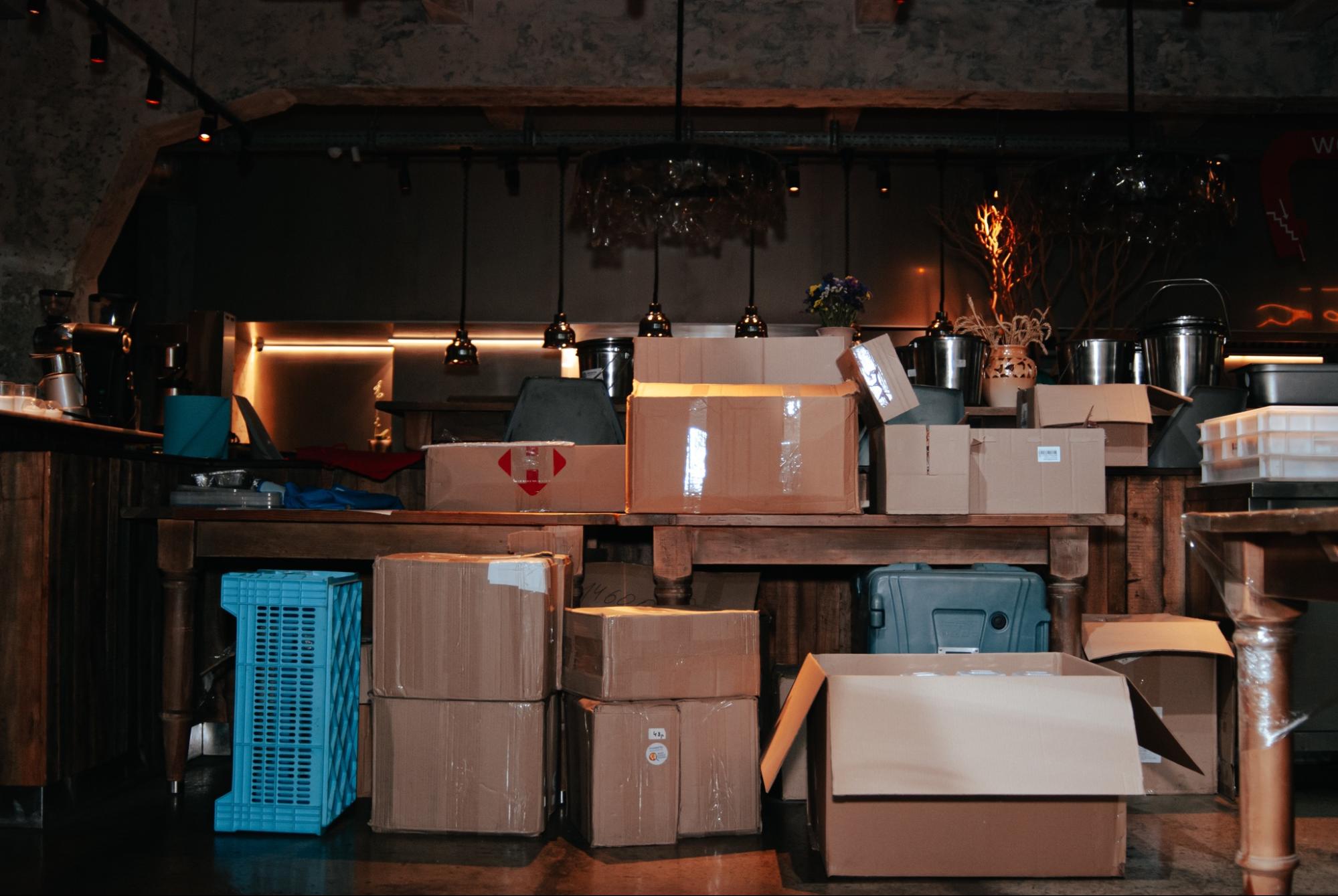
What is World Central Kitchen? This is an international organization that feeds people affected by natural disasters. Previously, the public organization provided people in the Dominican Republic, Nicaragua, Zambia, Peru, Cuba, Uganda, the Bahamas, Cambodia, the USA, and now in Ukraine.
In Ukraine, the WCK food mission began its work on February 24. They distributed the first food at the Lviv train station, and a week later, the organization's representatives were already working in the country's largest cities. "It was very systematic work," says the regional leader of the WCK mission, Denys Kondaurov.
Denys Kondaurov takes care of four Ukrainian regions: Donetsk, Dnipropetrovsk, Zaporizhzhia, and Kherson.
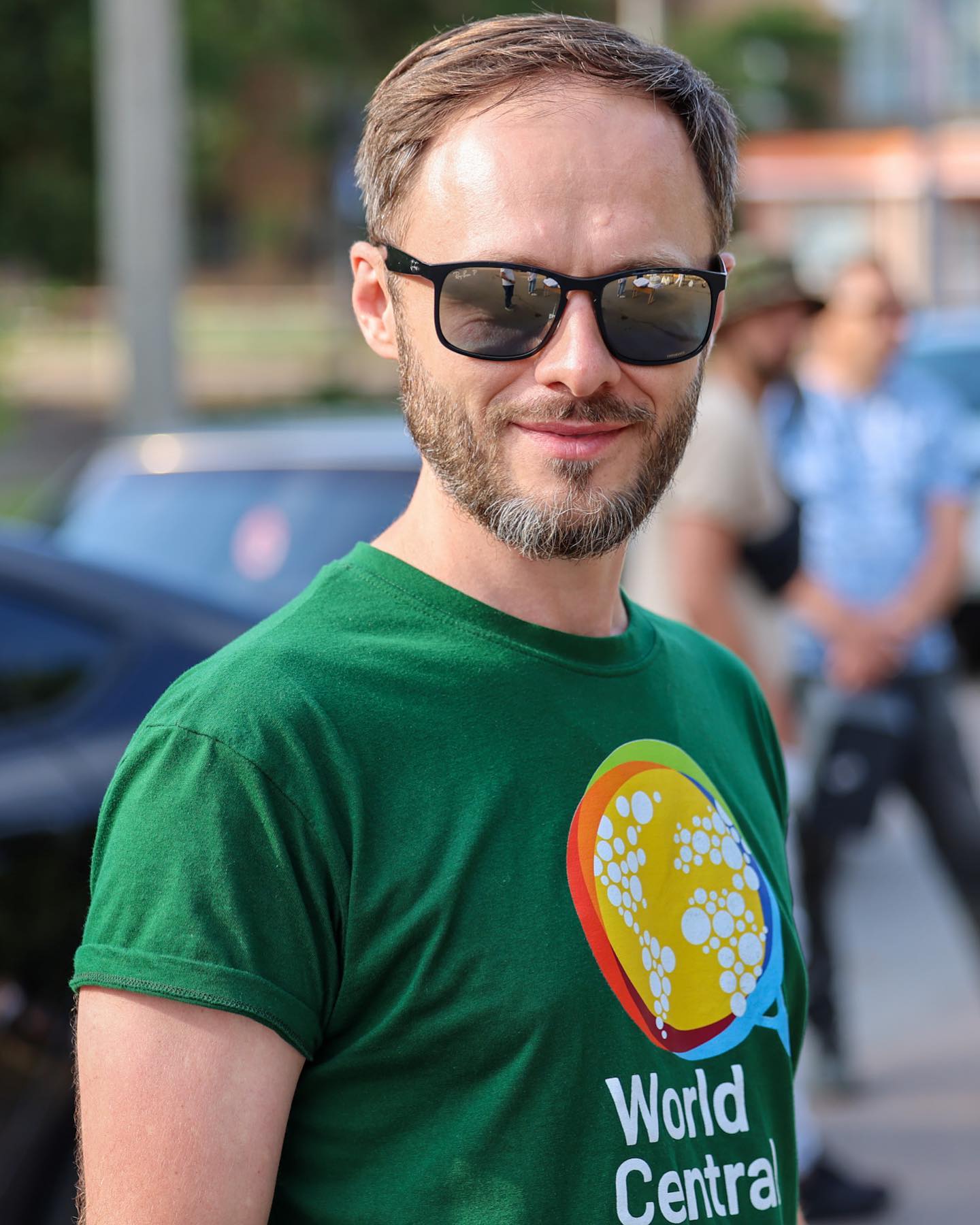
Denys Kondaurov takes care of four Ukrainian regions: Donetsk, Dnipropetrovsk, Zaporizhzhia, and Kherson.
There are several work areas at WCK: the "restaurant" format of preparing meals for the military and displaced persons, issuing food packages, feeding people on the frontline, and de-occupied territories. Denys Kondaurov says that each area subordinate to him has its specifics of work and problems. In the Donetsk region, there are liberated territories without electricity and water, and many people need help. That is, there is no point in handing out grocery sets there as people can't cook anything from them. Therefore, WCK volunteers take ready-made hot food there.
In the Zaporizhzhia region, the front almost doesn't move, but there are a lot of strikes, so rescue workers, people who work at the sites where russian rockets hit, and the injured are being fed en masse.
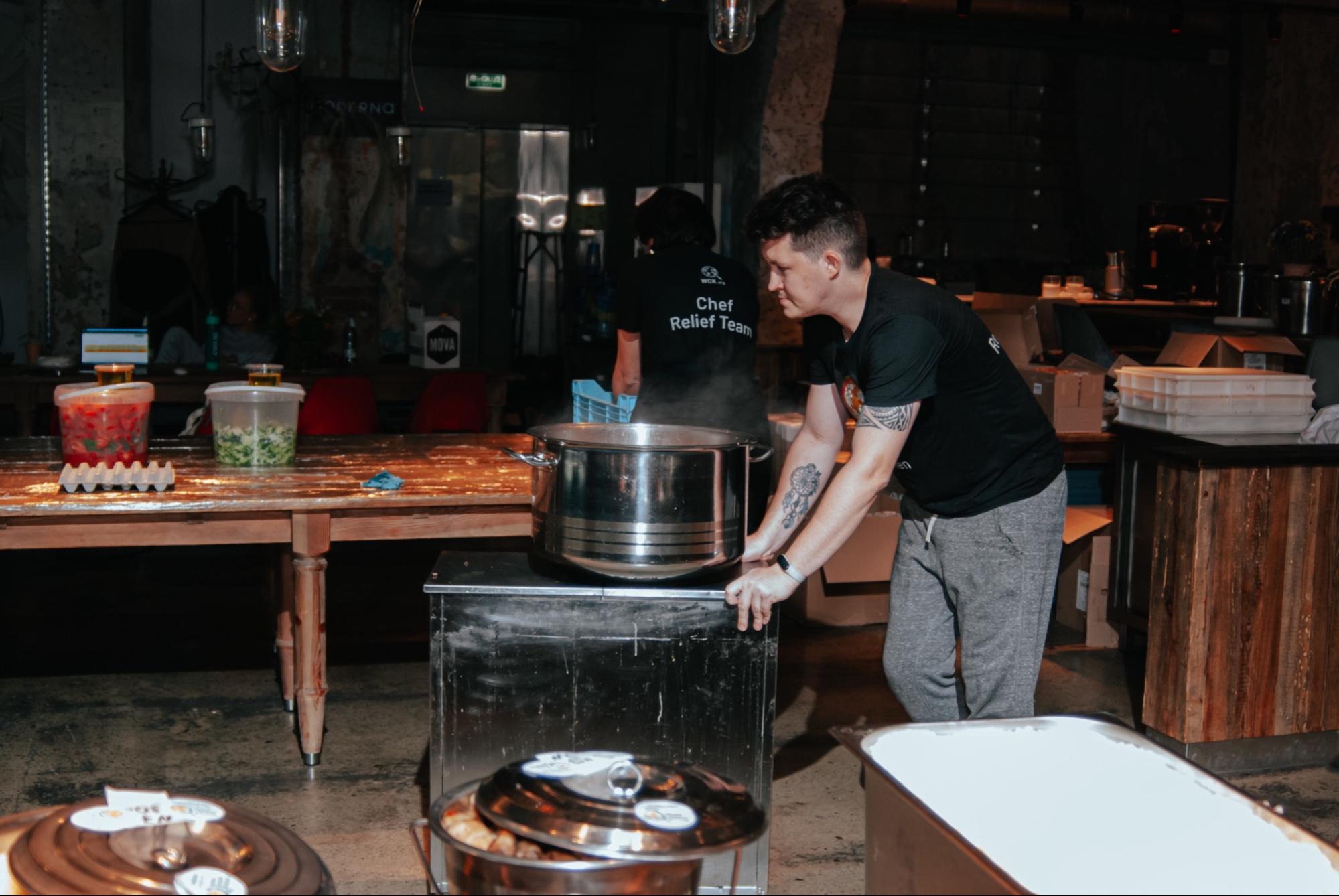
"The Kherson region, which has always been a food paradise, was left without vegetables. People say, 'We couldn't grow anything.' That is why we are now helping the villages of this region with vegetables," says the regional leader.
The WCK food mission goes with food to the liberated areas after the demining and the military's mop-up. "It may even be the second day after the Ukrainian flag flew over the territory. The main thing for us is to get approval from the military: 'You can go.' The next day we already feed people."
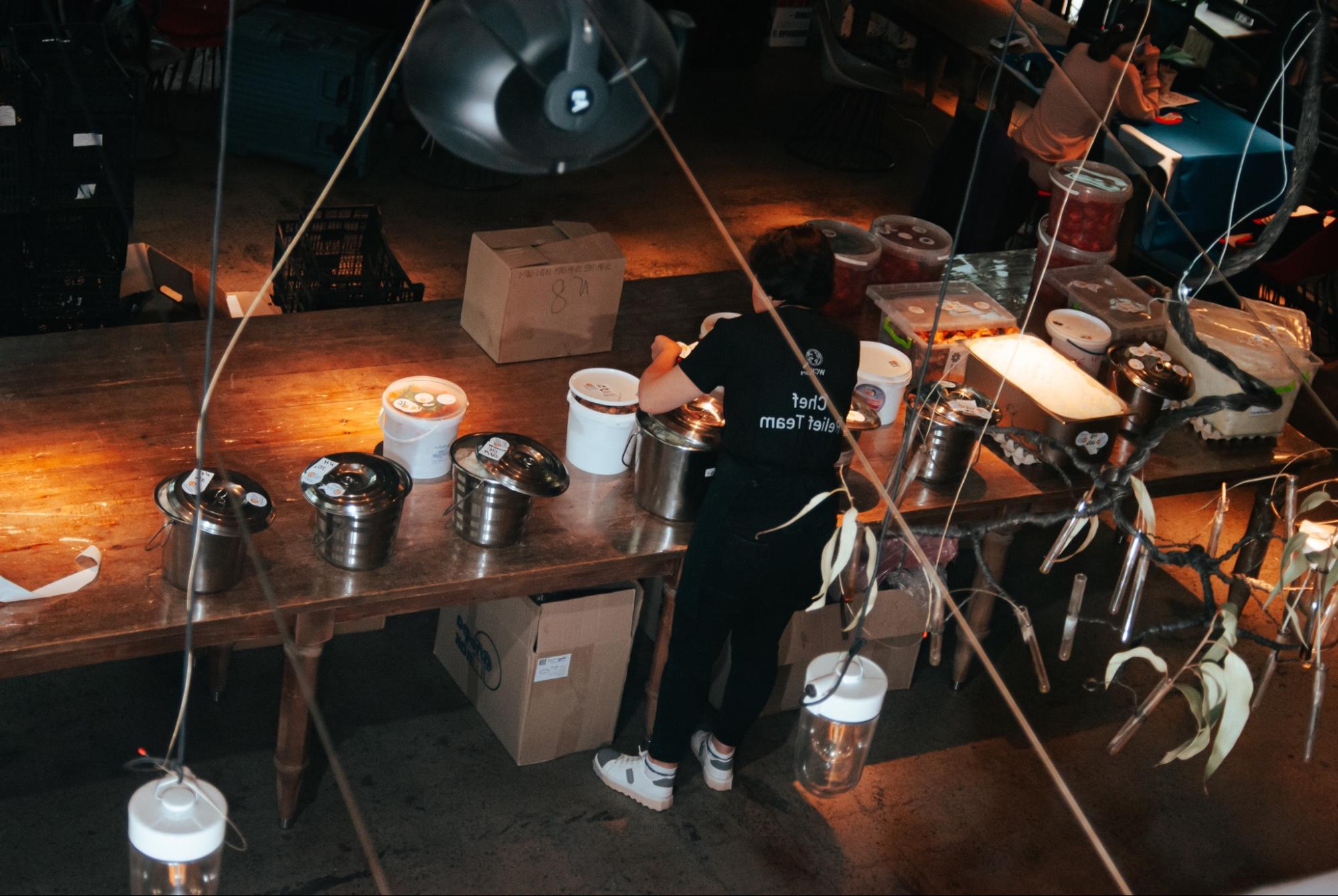
Now the organization's emphasis is feeding people in the front-line territories and recently de-occupied areas. "These villages and towns did not have access to food or any supplies for several months. Even after the liberation, the logistics chains are broken, part of the land remains mined, local businesses do not work, and there are no people ready to bring and even sell food there for the money," says Denys Kondaurov.
Since February 24, the food mission has distributed 169 million hot portions through restaurants and street hot spots. In addition, more than 5 million Ukrainian families received food packages.
What's now?
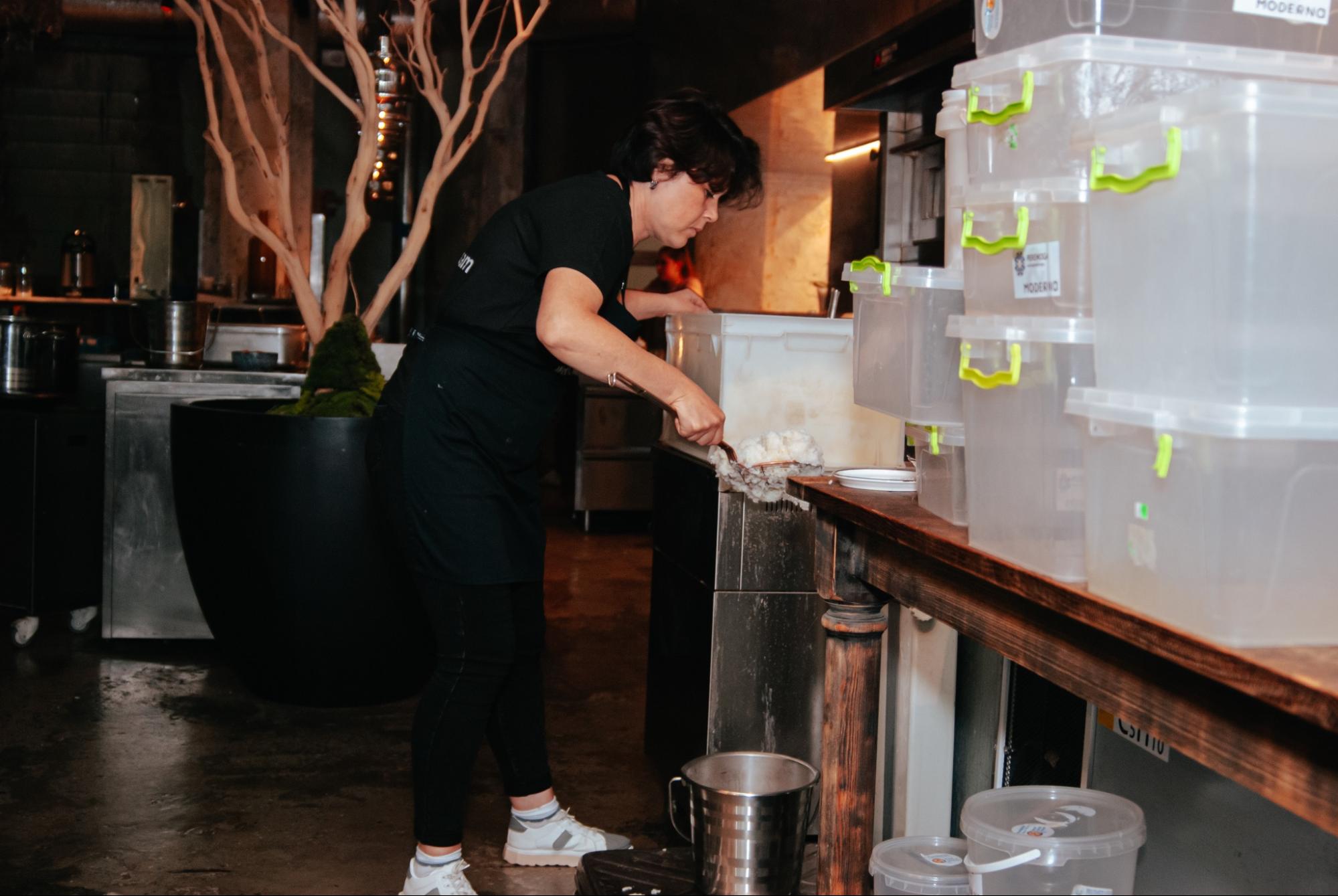
After Victory Ukraine joined forces with WCK, the team mainly emphasized caring for people on the frontline and de-occupied territories. Currently, the mission in Dnipro feeds a thousand migrants and people who work at the missile strike sites daily.
Victory Ukraine's volunteers also opened a social restaurant in Dnipro. Up to one and a half thousand needy people can get food there. Each portion is free.
"We understand that we don't want to abandon the displaced people taken care of earlier. If a person has the opportunity to go to work, we help with socialization and employment. But there are pensioners, people with disabilities, large families, or mothers who raise children alone," says Anastasia Yerak.
Professional cooks work in the kitchen of the social restaurant, and displaced people work on delivery, cleaning, and registration.
How to help?
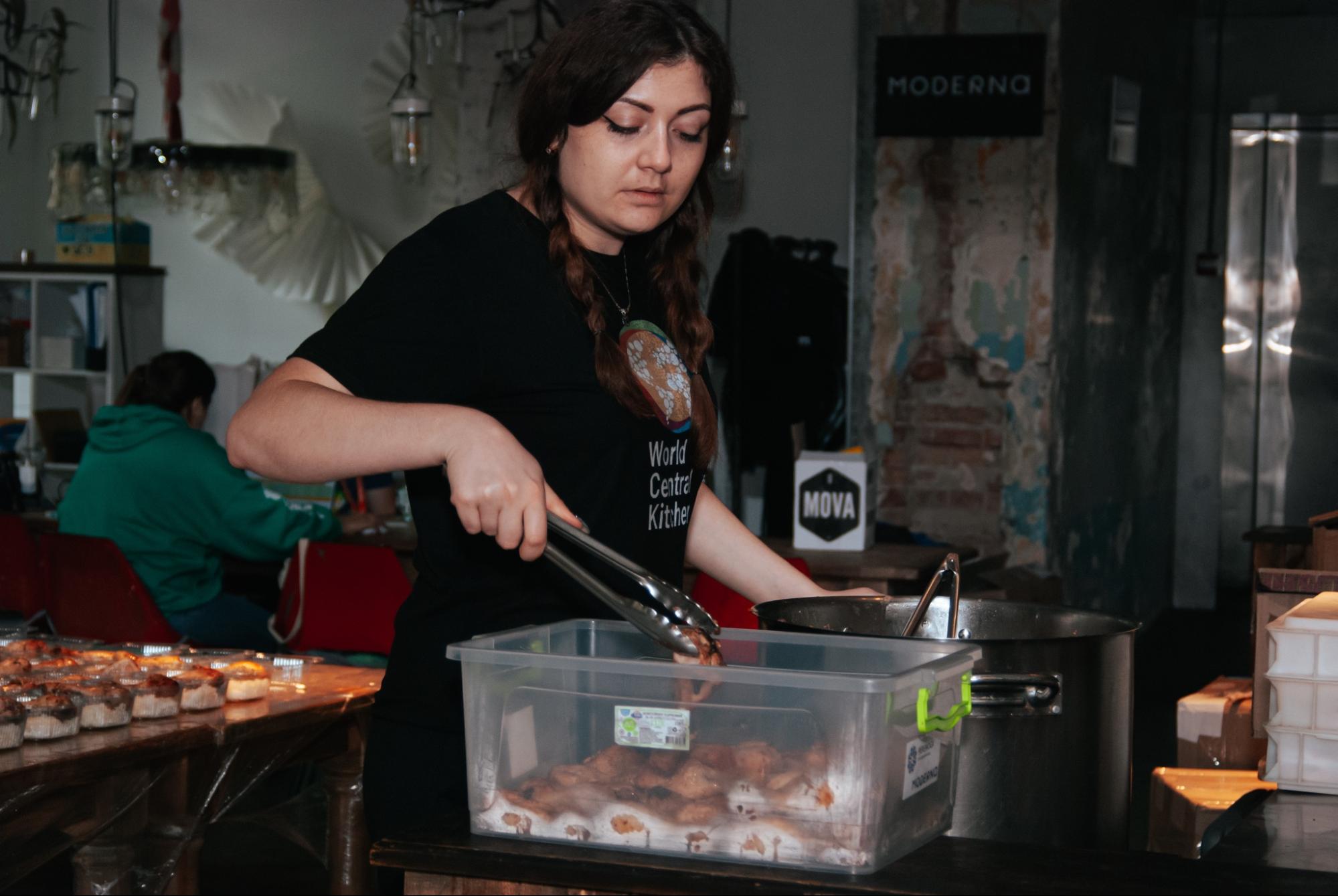
Foreigners donate money to the WCK food mission. There are different account details for them.
Dnipro's Victory Ukraine needs specialists who will be able to join the work with migrants and their children. Because feeding people is only one of the directions in which the charity fund is engaged.
"We are in constant communication with 20 shelters. We are continuously learning what the children who are there need. It can be a master class in soap making, pizza, or gingerbread cooking. We need locations, specialists, and project managers," says Anastasia Yerak.
If you can join, write to the page of the Charitable Foundation. You can help Victory with money here.





